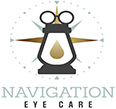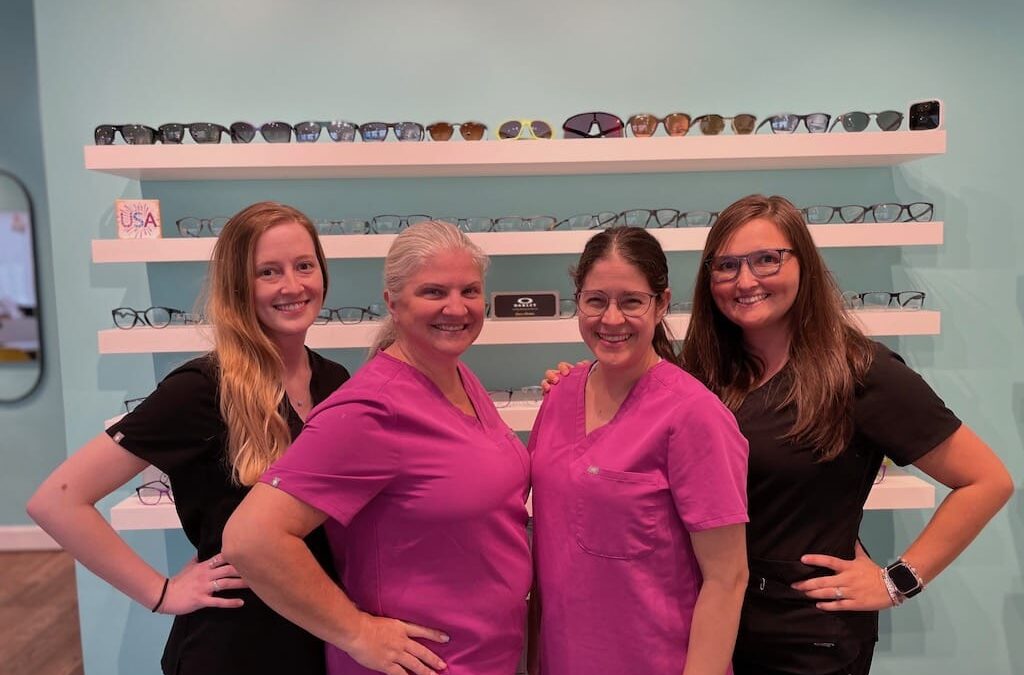Cultivating Clarity: How Vision Therapy Enhances Visual Memory and Cognitive Skills
Vision therapy is often associated with improving eyesight, but its benefits extend far beyond just seeing clearly. One remarkable aspect of vision therapy is its capacity to enhance visual memory and cognitive skills. In this article, we’ll explore the fascinating connection between vision therapy and cognitive development, with insights from Navigation Eye Care’s very own Optometrist Chesapeake VA.
The Connection Between Vision and Memory
Visual memory is the ability to remember and recall visual information accurately. It plays a significant role in our daily lives, from recognizing faces to reading and comprehending text. When visual memory is impaired, it can lead to difficulties in learning and performing tasks that require visual recall.
Understanding Vision Therapy
Vision therapy is a specialized program designed to improve various aspects of visual function. It consists of a series of exercises and activities tailored to an individual’s specific visual needs. While it can help address issues like lazy eye (amblyopia) and crossed eyes (strabismus), it also has a profound impact on visual memory and cognitive skills.
Enhancing Visual Memory
- Spatial Memory: Vision therapy exercises often involve spatial awareness tasks, like navigating through mazes or remembering the placement of objects. These activities challenge and enhance spatial memory.
- Sequencing: Vision therapy activities often involve sequencing tasks, such as following patterns or sequences of objects. This helps improve an individual’s ability to remember and reproduce sequences accurately.
- Visualization: Visualization exercises are a crucial part of vision therapy. They require individuals to create and hold mental images, strengthening their visual memory.
- Pattern Recognition: Vision therapy can include exercises that improve pattern recognition, a fundamental component of visual memory.
Cognitive Skills and Vision Therapy
- Attention and Concentration: Vision therapy helps improve attention and concentration by training individuals to focus on specific visual tasks for extended periods. This is invaluable for tasks that require sustained concentration, such as reading and studying.
- Problem-Solving Skills: The ability to process visual information more efficiently can enhance problem-solving skills. This is especially valuable in academic and professional settings.
- Processing Speed: Vision therapy can improve the speed at which an individual processes visual information, helping them react more quickly to changing situations.
- Reading Comprehension: Visual memory enhancements through vision therapy can lead to improved reading comprehension, as individuals can better retain and recall the information they read.
Consulting Navigation Eye Care’s Optometrist Chesapeake VA
To harness the cognitive benefits of vision therapy, it’s essential to consult with a qualified developmental optometrist who specializes in this area. At Navigation Eye Care we conduct a thorough assessment of your visual skills and cognitive needs and design a personalized vision therapy program specifically for you.
Conclusion: Cultivating Clarity for a Brighter Future
Vision therapy is not just about seeing more clearly; it’s about optimizing your cognitive skills and visual memory. The benefits extend to various aspects of life, from academics and professional development to daily tasks and activities. By partnering with Navigation Eye Care’s Optometrist Chesapeake VA and her team, you can cultivate clarity in both your vision and your cognitive skills, paving the way for a brighter and more successful future.
Vision Therapy for Seniors: Enhancing Visual Quality of Life
As we age, our vision naturally undergoes changes, which can impact our overall quality of life. However, vision problems are not an inevitable part of growing older. Vision therapy, often associated with younger individuals, is a valuable option for seniors looking to enhance their visual quality of life. Let’s look into the potential benefits of vision therapy for seniors and how Navigation Eye Care’s Optometrist Chesapeake VA can help.
Understanding Age-Related Vision Changes
Aging can bring about various changes in our vision, including:
- Presbyopia: Difficulty focusing on close objects due to the loss of flexibility in the eye’s natural lens.
- Reduced Contrast Sensitivity: Difficulty distinguishing objects from their background, particularly in low-light conditions.
- Loss of Peripheral Vision: A decrease in peripheral vision, which can affect awareness of objects and obstacles in the environment.
- Reduced Color Perception: A shift in color perception, often making it challenging to differentiate between certain shades.
How Vision Therapy Can Benefit Seniors
While vision therapy is commonly associated with children and young adults, it is a valuable option for seniors looking to address age-related vision changes and maintain their visual independence. Here are some potential benefits:
- Improved Near Vision: Vision therapy exercises can help seniors with presbyopia improve their ability to focus on close-up tasks, such as reading, knitting, or using digital devices.
- Enhanced Contrast Sensitivity: Vision therapy can train the visual system to better distinguish objects from their backgrounds, improving overall visual clarity.
- Peripheral Vision Preservation: Exercises that challenge peripheral vision can help seniors maintain awareness of their surroundings, reducing the risk of accidents.
- Color Discrimination Enhancement: Vision therapy may enhance color perception, allowing seniors to enjoy a more vibrant and colorful world.
Personalized Vision Therapy Programs
Navigation Eye Care’s experienced Optometrist Chesapeake VA can design a personalized vision therapy program tailored to a senior’s specific needs and goals. These programs often include a combination of exercises, activities, and visual techniques to address age-related vision changes effectively.
Vision Therapy at Any Age
It’s important to emphasize that vision therapy is not limited by age. Seniors can benefit from vision therapy just as much as younger individuals. The key is early intervention and seeking the guidance of a knowledgeable optometrist who specializes in vision therapy.
Maintaining Independence and Quality of Life
For many seniors, maintaining independence and a high quality of life is a top priority. Vision therapy can play a vital role in achieving these goals by addressing age-related vision changes and enhancing overall visual function. Seniors who engage in vision therapy may find it easier to read, drive, enjoy hobbies, and participate in social activities.
A Brighter, More Independent Future
Age-related vision changes do not have to diminish your quality of life. Vision therapy, under the guidance of Navigation Eye Care’s Optometrist Chesapeake VA and her team, can empower seniors to enjoy clear, comfortable vision and maintain their independence. By investing in your visual health, you can look forward to a brighter and more vibrant future, no matter your age.

